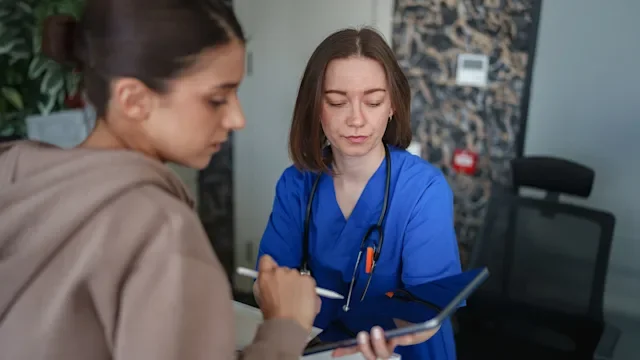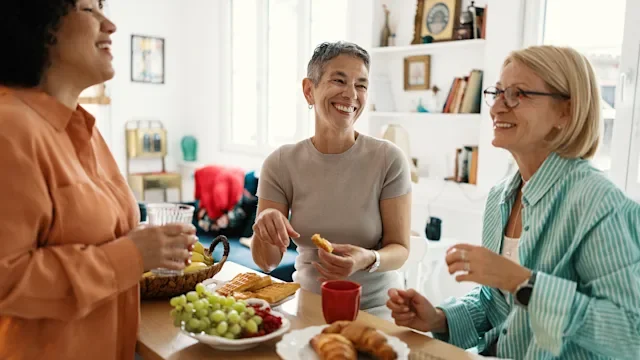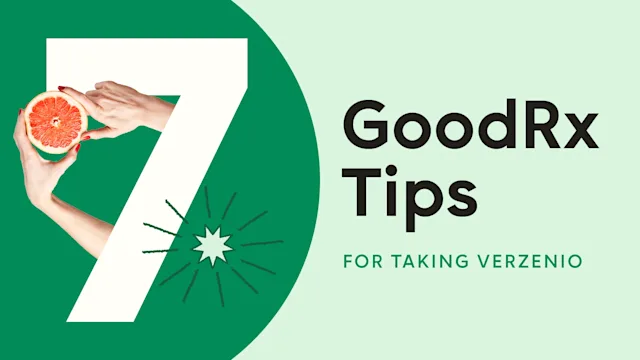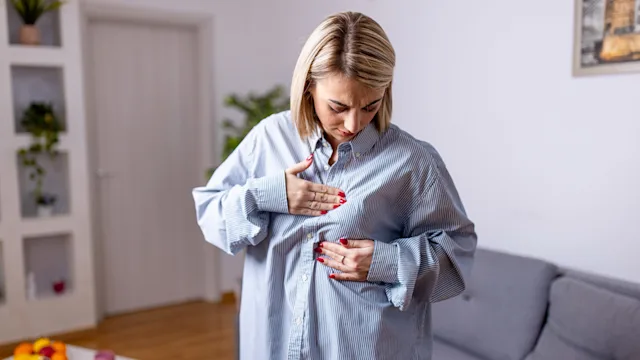Key takeaways:
Jessica Baladad comes from a family affected by breast cancer.
She learned the importance of regular self-exams when she found a lump herself.
Jessica became an advocate for early detection and created an app to help simplify complex medical information.
Breast cancer runs in Jessica Baladad’s family on her father’s side.
Fourteen women — including her grandmother, great-grandmother, and two aunts — have had the disease. While no family member has tested positive for any of the mutated genes linked to hereditary breast cancer, it was a concern.
Jessica’s dad’s older sister was diagnosed in 1994.
“I remember being 9 when I started to understand cancer,” Jessica says. “I remember there was a day we gathered at her house to take family photos, because they thought this was it.”
Still, for years, Jessica wasn’t diligent about breast cancer self-exams. When, as a freshman in college, she “stumbled upon” a lump in her breast, she remembers thinking: “Is 18 years old too young to get cancer?”
The importance of early detection
Initially thought to be a cyst, the lump in Jessica’s breast was a fibroadenoma, a common, noncancerous tumor that grew until she had it removed via lumpectomy.
The experience prompted Jessica to make breast cancer self-exams a monthly habit, something she did after her period had run its course each month. For “how-to” guidelines, she had a waterproof shower hanger with instructions from the National Breast Cancer Foundation (NBCF).
Jessica didn’t know then that, years later, a self-exam would be the first sign that she did have breast cancer. She would eventually beat it with a double mastectomy, 16 rounds of chemotherapy, and 24 rounds of radiation.
She also didn’t know that she would later include shower hanger information when she created Feel For Your Life, a free app that includes information on how to do a self-exam.
“I feel it’s a privilege to be able to do this, not only because I beat cancer, but for all of the women across the world who have put their trust in me,” says Jessica, now a 39-year-old breast cancer advocate in Clarksville, Tennessee.
From a personal mission to a widespread initiative
Jessica became a breast cancer awareness advocate after her lumpectomy in college and before her diagnosis years later. She used social media platforms to remind people of their breast cancer risks. Offline, she would wear T-shirts that said “Got Boobs? Get Checked” and “Explore Your Mountains: Self Exams Save Lives.”
She later launched a website that includes instructions on how and when to do a self-exam, types of screenings and genetic testing.
“I assumed most women were doing their self-exams routinely, because I know I was,” she says. “I’d tell people I found my lump during a self-exam. ‘You do your self-exams, right?’ And it was crickets.”

Jessica found the lump that would lead to her cancer diagnosis in 2018. She wrapped up her treatments, which also included a hysterectomy and a 10-hour flap reconstruction, a year later.
When the COVID-19 pandemic temporarily shut down the world, Jessica created her app. The app made a splash when it was released in 2021, talked about on “Good Morning America” and ABC News and written about in USA Today and Good Housekeeping. The app also has been endorsed by organizations including NBCF.
Using technology for self-education and awareness
Feel For Your Life started as a hobby, but now it’s Jessica’s job. Companies hire her to learn more about the patient experience or to hold employee workshops. Businesses sponsor parts of the website and the app.


Jessica also works to keep the app fresh and relevant: In April 2024, the app added BreastFriendAI, a feature that can, among other things, explain pathology reports and create mammogram-appropriate playlists for anxious patients.
“I’d get so many texts from women saying, ‘I don’t know what this means.’ Now you can put your pathology report in the AI and it will translate it in terms you understand,” Jessica says. “It’s not to replace your doctor. It’s to help you come up with questions for your doctor. It’s that person you wish you could bring to the doctor.”
Advocating for cancer screening legislation
Jessica is also advocating for women’s health issues with elected officials. She worked with a Tennessee lawmaker on the Feel For Your Life Act, which would require high school students to learn about self breast exams, testicular exams, and skin exams. The effort died when the sponsoring legislator lost reelection, but Jessica wants to work with his replacement to refile the bill in the 2025 legislative session.
In February 2024, the U.S. House of Representatives passed a bipartisan bill affecting federal employees’ health insurance that would ban drug middlemen from charging fees based on drug list prices, another issue Jessica supported.
She’s also a sounding board for the countless women who message her online.
“I’ve answered DMs at 4 in the morning from people who are scared,” she says. “I’ve worked with an individual who messaged and said, ‘Hey, my insurance company denied this. What can I do?’”
Breast cancer awareness tips from a cancer survivor
After years of advocacy, Jessica finds that many people have the same questions. These are her tips for getting through self-exams, mammograms, and a difficult diagnosis.
1. Find a great doctor
If you find a lump that’s cancerous, Jessica says, it’s important to find a doctor who matches your needs. She suggests doing research and asking others who have had breast cancer for recommendations. She says it’s key to establish goals and find a provider who meets the character traits and competencies that will help you work toward them.
2. Perform routine self-exams
Jessica says you can find information about how to do a breast self-exam online, through her app, or from your doctor. She says it’s important to know your “normal,” as far as any lumps or bumps go. You can work with your health team to establish your baseline and discuss self-exams. Jessica’s app lets her track her exams and sets a monthly reminder to keep the routine going.
3. Pay attention to guidelines regarding mammograms
The age at which you should start getting mammograms depends on your risk factors and other preferences. Most medical guidelines recommend mammograms starting at age 40. Jessica, a cancer survivor at age 39, says it’s important to start talking to your doctor early on about your risk factors and preferences.
4. Learn about the best screening tests for dense breasts
Almost half of women 40 years and older have dense breast tissue, which can affect the reliability of a regular mammogram. Jessica says you should talk to your doctor about the best screening test — such as a 3D mammogram — to get an accurate reading.
5. Understand your genetic predisposition to all cancers
Jessica has become an advocate for all cancer screenings. Science has shown that there are correlations between different cancers. Jessica recommends talking to your doctor about cancer screenings and knowing that, if you are at higher risk, you may need more frequent testing.

Why trust our experts?

















